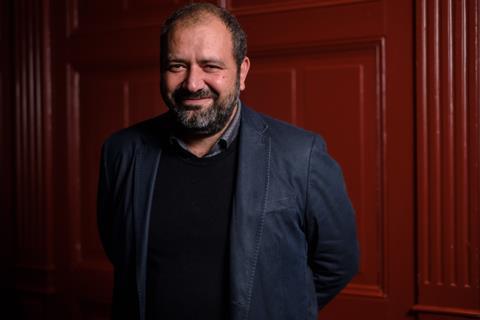
As his final edition as artistic director of IDFA (November 14-24) drew to a close, Orwa Nyrabia warned the documentary industry is becoming dangerously polarised in terms of budgets and that independent players are increasingly at risk.
“What we are witnessing in this field is very much what in politics or sociology you would call the erosion of the middle class. We are witnessing more and more funding and higher budgets for what are now called ‘premium’ documentaries,” said Nyrabia. “These are made by design for wide audiences and mass media…[but] then you have all the many independent filmmakers around the world. They all are forced to be much lower budget than before.”
“We at IDFA have been trying to put these more and more marginalised kind of films and projects front and centre.”
Although many independent sales agents in IDFA were talking of a crisis in the distribution sector, the festival itself ran smoothly this year, without the political protests that dogged last year’s event.
“We have experienced a week of beautiful discussions even in disagreement,” said Nyrabia, who reported attendances have been robust, roughly on a par with 2019.
Contemplating the struggles of independent distributors, Nyrabia a referred to “a shift in mentality” in public funding with European state bodies now often putting more money into fewer feature docs. “It’s a valid approach to try to support your country’s big productions to have a better chance internationally, as long as you do not undermine all the smaller ambitions and mid-size projects.” But he highlighted the danger facing documentary as public funders place commercial viability ahead of “cultural value”.
The festival programmed some Israeli titles this year, notably Danae Elon’s international competition entry Rule Of Stone.
Nyrabia accepted criticism of the festival. “It is absolutely OK and welcome that somebody voices their critique of us and we have to listen,” he said. “I did not see any protest from the pro-Palestinian side that was not respectful in principle…to me, that is a pleasure. I am happy and proud that after last year’s very intense and difficult challenge, we do not ignore these questions but that we succeed in talking about them in ways that are serious and constructive.
Nyrabia warned of the dangers of self-censorship. “I do still think there is an unsustainable level of pressure from government people, corporate sponsors, from artists in pain…”
He talked of his own feeling of “walking on eggshells and not being able to address important topics seriously…when I am discussing for example the Arab-Israeli conflict, there are seven main terms I should not use, 20 different ideas I should not mention. I have to make everybody happy. Then, we as cultural workers, are trying to be diplomats…we need to be able to do what we do best which is to seriously address difficult questions. We still have space to discuss and think.”
There were also a number of Ukrainian titles in official selection including Olha Zhurba’s Songs Of Slow Burning Earth, Sergei Loznitsa’s The Invasion, Oksana Karpovych’s Intercepted and Oleh Sentsov’s Real. However, no Russian films were programmed other than Alexander Sokurov’s 1995 film Spiritual Voices screening as part of the programme overseen by guest of honour, Johan Grimonprez.
Russian-Canadian director Anastasia Trofimova’s controversial documentary Russians At War, that follows Russian soldiers on the frontline of the Ukraine invasion, had initially been invited but was withdrawn.
“IDFA selected the film and then retracted the invitation after speaking with the film team and realising the mistake,” confirmed an IDFA spokesperson.
Festival funding
Following the news of th funding challenges being faced by European cultural organisations including the Locarno FIlm Festival and the Berlinale, IDFA managing director Cees van ‘t Hullenaar confirmed it is estimated IDFA’s budget will fall slightly to €8.6m in 2025 from the €9m budget of 2023 and 2024.
“Our structural subsidy will remain the same for the next four years as it was for the past four years,” said van ‘t Hullenaar. ”With all the price increases, that is actually a discount. And on top of that, we now have a theater under our care that costs more than it brings in. So financially it will be a challenge for the next four years, but with that structural subsidy there is a stable basis to build on and we also see financial possibilities. So it is not easy but certainly not disastrous.”
When it comes to where the funding comes from, Nyrabia made it clear the festival has robust measures in place to ensure its funders conform to its ethical criteria. “We have a very clear code of conduct when it comes to who we work with,” he said. “Every time a funder is interested in working with us, we go through a process of researching [that funder] and our research team comes back with a list of pros and cons. We sit down, ask questions and sometimes we go to the funder and say we have reservations. However, knowledge keeps on changing. Information keeps on changing. Our own social and political commitments change.”
Nyrabia said this was a complex and difficult subject. “We need to look at this [sources of funding] in serious pragmatic ways. We should not be purist as much as serious, ethical and a bit pragmatic. There are also times when you have to stop taking money as a form of pressure.”
Nyrabia added what was crucial was “transparency…we are not playing God on judgement day - and if we are to do that, let’s remember forgiveness is part of that equation too.”
As announced earlier this month, Nyrabia will be standing down from IDFA next July. He confirmed he could in theory have stayed as artistic director for one further edition.
“The question was whether I should extend for six months [to oversee the 2025 edition]. But I felt it was much better to leave in summer so there is space for a transition. I felt we are now out of a cloud…that’s a good moment for my departure to be happening in a positive context. IDFA has a great team, wonderful people, and they deserve that such a transition is happening at a time that is not unsettling their work.”




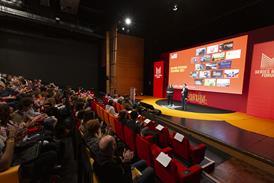
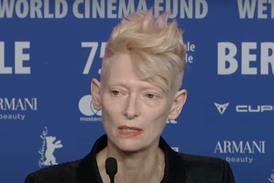
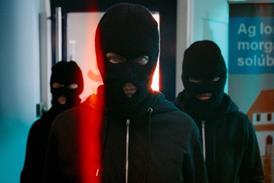
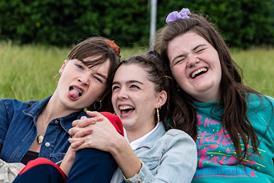





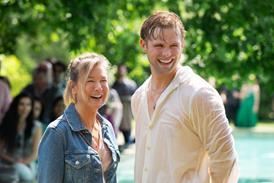


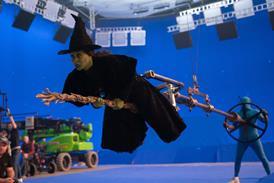
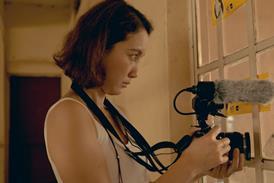







No comments yet